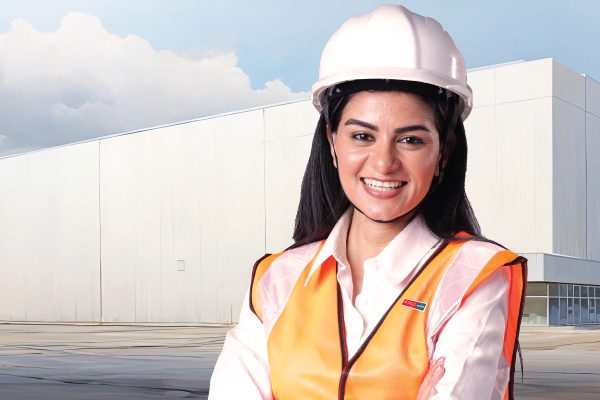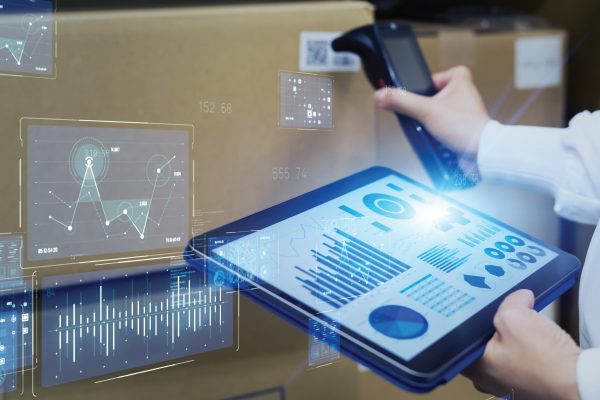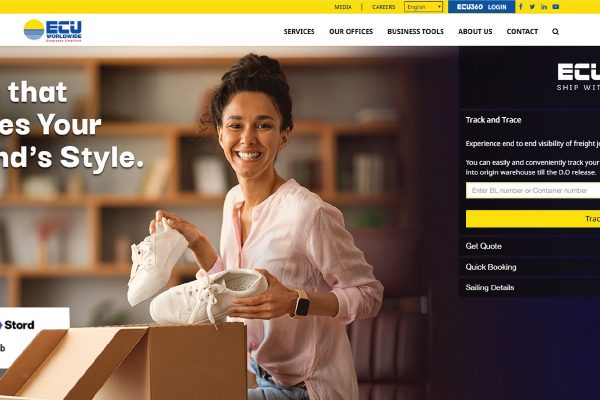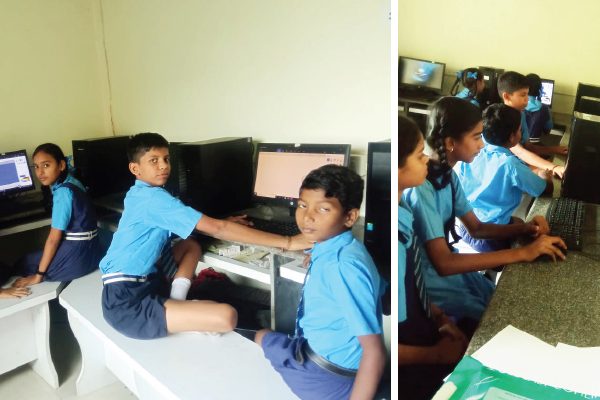Charting a New Course to the Top Allcargo Logistics, part of the Avvashya Group, is a global leader in integrated logistics solutions. Dr Shashi Kiran Shetty, Chairman, Allcargo Logistics & ECU Worldwide, discusses the group’s journey over the past 25 years. Further, he throws light on industry trends shaping the future of the group and the sector in this interview. Excerpts:
Q From being Ecu-Line’s forwarding agent, your firm became the global leader in LCL consolidation as ECU Worldwide within a short span of time. Simultaneously, you emerged as India’s largest integrated logistics solutions provider in the private sector within a decade. How did you make this happen?
Answer: We started Allcargo’s business of LCL consolidation and FCL forwarding, together with project logistics and transportation in the port of Mumbai and across the country in 1993.
Our growth has been phenomenal since then, with the Indian economy opening up around the same time. The kind of competency and knowledge we brought, was well accepted by our customers.
We were able to scale up our business across the country over the following 3-4 years, opening up 20 new offices. We also formed strong global agent-principal partnerships with many companies.
One such company was Ecu-Line, as it was known in those days. With this strategic partnership, we were able to grow our global network that soon started generating business out of India.
Over the years, our worldwide agents have sent business to Allcargo’s offices in India, which is how we grew globally. Today, we’ve grown to become the largest player in the private sector in India. We expanded into container freight stations, coastal shipping, contract logistics, freight-forwarding and equipment rentals, which fueled our business to become large and diversified.
In 2005, we realised that the promoters of Ecu-Line wanted to exit the business. We were able to capitalise the valuation of our company and sold a small per cent to private equity investors. We then decided to buy a part of Ecu-Line, which further strengthened our global footprint.
After about a year of closely working with us, the promoters of Ecu-Line decided to sell their remaining shares and we decided to buy them. That was a turning point for us and that’s how we became one of the largest players in the LCL business globally.
We saw tremendous opportunities in Ecu-Line. It was five times our size at that time, in terms of people and the large network of offices. We had minimal experience in managing a global business, which was a challenge initially, but our hunger to succeed was much bigger. We equipped ourselves quickly, by sharpening our management skills, hiring top talent in India and our overseas centres, and learning to culturally adapt and manage a growing business in developed economies.
Our thrust on making Ecu-Line successful has helped us turn the company around. We’ve developed the business beyond Europe into markets such as the US and China and opened offices around the world, making it a truly global enterprise.
Q You rebranded Ecu-Line to ECU Worldwide. What was the objective and how does it add value to your clients and stakeholders?
Answer: Ecu-Line is a popular name in the shipping and logistics industry. The reason for rebranding it to ECU Worldwide is because we have transformed it from a pure port-to-port operator to a door-to-door operator. ECU Worldwide is not just an LCL operator; it also carries full container loads (FCL) of cargo and offers services in the air-freight and on-forwarding segments from the port of discharge to the final destination.
ECU Worldwide is also geared to offer services in project logistics. The word ‘line’ did not resonate with these operations. We wanted to bring the true sense of our businesses and value proposition to our customers. As ECU Worldwide, we are reassuring clients and helping them understand what more we can do for them. With the new and refreshed brand and an all-new brand proposition, we have come closer to our customers.
We also wanted to reenergise the entire organisation through this rebranding exercise. I am glad that our new brand identity has reinvigorated our worldwide employee base.
We are delighted that the company has transformed and seamlessly transitioned to a truly global logistics solutions provider.
Q What are the key challenges that you see across the various industries you serve and the multiple countries you operate in?
Answer: Different countries have different challenges. We constantly face challenges in terms of infrastructure bottlenecks, port congestions, delays due to regulatory clearance processes and security concerns in some countries. On top of that, the global economy has been extremely volatile. There have been multiple crises since 2008.
In the face of these challenges we need to keep our margins intact, employees motivated and bring in best practices. We also have to think of ways to withstand the onslaught of digitalisation and the technological revolution we see around us. There are also pressures from a financial standpoint, at times.
We always need to think of newer and smarter ways to face these challenges, just as we faced them in the past.
Thanks to a strong and able team, comprising young blood and experienced minds, we are a very agile organisation with the maturity and intellect to continuously innovate and stay ahead.
Q How is India placed to serve the global logistics industry, especially with the Goods and Service Tax or GST law likely to come into force from next year?
Answer: India offers tremendous opportunities. We have a robust economy, which is expected to grow even further. GST is a landmark tax reform measure, which will break a lot of barriers and ensure that India becomes a single market. It will remove a lot of inefficiencies that exist in the system. Overall tax collection will increase as leakages are likely to stop.
Most importantly, the government’s ‘Make in India’ programme will get a huge boost, as global manufacturers become confident and invest in the country. I am sure the government will make every effort to rollout GST over the next 12 months and I wish them all success.
There is lot of scope to improve infrastructure in India. We have a large population living below the poverty line. Alleviating poverty and placing money in the hands of the poor people will generate more jobs. Burgeoning demands of a growing population are already opening up new sectors. We’ve already witnessed the e-commerce boom. All these factors will drive up the economy and I expect to see better days ahead.
Q What are your views on the long-term growth prospects for the industry and your vision for the group?
Answer: There will be changes in technology such as 3D printing and driverless cars. But eventually cargo will need to move. I don’t think next-gen technologies like 3D printing can take over or replace global trade. They may ease the challenges in trade and transport, they may even bring some stress, but traditional logistics channels are here to stay. It’s up to logistics providers to make good use of the relevant technologies to stay ahead in the race.
Our vision is to continue to grow, to maintain the momentum of creating value for our shareholders and to our employees. We would like to be seen as one of the top-performing logistics groups in the world and become a respected name in the industry.













